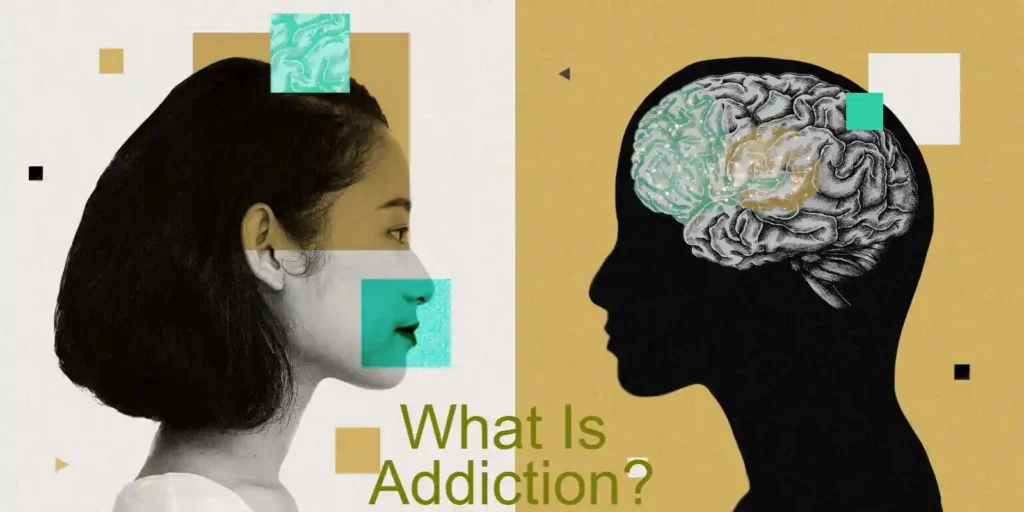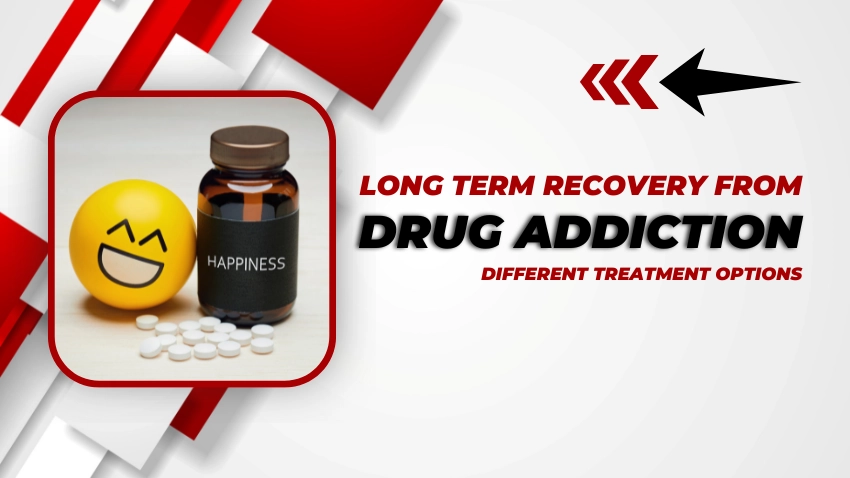Getting help for addiction can save your life. Many people beat addiction every day. The right treatment makes recovery possible.
This guide shows you real ways to get better. We talk about treatments that work. You will learn how to find help that fits your needs.

What Is Addiction?
Addiction changes your brain. It makes you want drugs or alcohol even when they hurt you. Your body and mind need the substance to feel normal.
Addiction is not your fault. It is a real medical problem. Like diabetes or heart disease, addiction needs proper treatment.
Facts About Addiction
- It affects your brain chemistry
- You cannot just stop by willpower alone
- Treatment helps your brain heal
- Recovery takes time and work
- Many people get better with help
- Families need support too
Why Treatment Works
Good treatment helps your brain get better. It teaches you new ways to cope. Treatment gives you tools to stay sober.
Studies show that treatment works. People who get help are more likely to stay clean. The earlier you start, the better your chances.
What Makes Treatment Work
- It addresses physical and mental needs
- You learn healthy coping skills
- You get support from others
- Medical care helps your body heal
- Therapy changes harmful thoughts
- You build a new way of life
Medical Detox – Getting Clean Safely
Detox is often the first step. Your body needs to get rid of the drugs or alcohol. This can be dangerous without medical help.
Medical detox happens in a hospital or treatment center. Doctors and nurses watch you 24 hours a day. They give you medicine to help with withdrawal.
What Happens During Detox
- Doctors check your health
- Nurses monitor your vital signs
- You get medicine for withdrawal symptoms
- Staff keeps you safe and comfortable
- You eat healthy food and drink water
- Mental health workers talk with you
Benefits of Medical Detox
- Safe withdrawal from substances
- Less pain and discomfort
- Lower risk of serious problems
- Professional care when you need it most
- Smooth move to the next treatment step
Medication Helps Recovery
Some medicines help people stay sober. These are safe when used correctly. A doctor must prescribe them.
Medicine works best with counseling. It is not a cure by itself. But it can make recovery much easier.
Medicine for Alcohol Problems
Naltrexone blocks the good feelings from alcohol. This makes drinking less appealing.
Acamprosate helps reduce cravings. It makes it easier to stay away from alcohol.
Disulfiram makes you sick if you drink. This helps you think twice before using alcohol.
Medicine for Opioid Problems
Methadone stops withdrawal and cravings. You take it once a day at a clinic.
Buprenorphine works like methadone but is safer. You can get it from a regular doctor.
Naltrexone blocks opioids from working. This helps prevent overdose.
How Medicine Helps
- Reduces strong cravings for drugs or alcohol
- Makes withdrawal symptoms easier
- Lowers the chance of overdose
- Helps you focus on getting better
- Gives you time to learn new habits
Talking Therapy Changes Your Mind
Therapy helps you understand why you use substances. You learn new ways to handle stress and problems. A trained counselor guides you through this process.
Different types of therapy work for different people. Most people try several kinds. The goal is to change how you think and act.
Cognitive Behavioral Therapy
This therapy looks at your thoughts and actions. Bad thoughts lead to bad choices. CBT teaches you to think differently.
What You Learn:
- How to spot triggers that make you want to use
- New ways to handle stress
- How to solve problems without substances
- Ways to change negative thinking
- Plans to avoid relapse
Why CBT Works:
- It gives you practical skills
- You can use it in daily life
- It works for many types of addiction
- It helps with depression and anxiety too
- The skills last for life
Motivational Interviewing
This gentle approach helps you find your own reasons to change. The counselor does not push you. Instead, they help you see why recovery matters to you.
How It Helps:
- You explore your feelings about change
- You find your own motivation
- You set your own goals
- You feel less pressure
- You become more willing to try
Group Therapy
In group therapy, you meet with other people in recovery. You share your stories and learn from each other. A trained leader guides the group.
Benefits of Group Therapy:
- You see you are not alone
- Others understand your struggles
- You learn from their experiences
- You practice social skills
- You build new friendships
- You help others by sharing your story
12-Step Programs
These are free support groups that meet regularly. The most famous is Alcoholics Anonymous. They use spiritual principles to help people recover.
Common 12-Step Groups:
- Alcoholics Anonymous (AA) – for alcohol problems
- Narcotics Anonymous (NA) – for drug problems
- Cocaine Anonymous (CA) – for cocaine addiction
- Crystal Meth Anonymous (CMA) – for meth addiction
What You Get:
- Free support anytime
- A sponsor to guide you
- Steps to work through
- Regular meetings
- People who understand
- Hope that recovery works
Family Therapy Heals Relationships
Addiction hurts whole families. Family therapy brings everyone together. You work on healing damaged relationships.
Families learn about addiction. They understand it is a disease. This reduces blame and anger. Everyone learns better ways to communicate.
What Family Therapy Includes
- Learning about addiction as a disease
- Improving communication skills
- Setting healthy boundaries
- Stopping enabling behaviors
- Rebuilding trust
- Supporting recovery goals
Benefits for Families
- Relationships get stronger
- Less fighting and stress
- Family members learn how to help
- Children understand what happened
- Everyone heals from past hurts
- The whole family recovers together
Residential Treatment – Living in Recovery
Residential treatment means living at a treatment center. You stay there 24 hours a day. This gives you intense focus on recovery.
Most programs last 30 to 90 days. Some longer programs last up to a year. You live with other people in recovery.
What You Do Every Day
- Individual counseling sessions
- Group therapy meetings
- Educational classes about addiction
- Life skills training
- Exercise and recreation
- Healthy meals
- Chores and responsibilities
Types of Residential Treatment
Short-term programs last 30 to 90 days. These work well for people with strong support at home.
Long-term programs last 6 months to 2 years. These help people with serious addiction or mental health problems.
Therapeutic communities focus on changing your whole lifestyle. Residents help run the program.
Benefits of Living in Treatment
- You focus only on recovery
- No access to drugs or alcohol
- 24-hour support when you need it
- You learn from other residents
- Safe place to practice new skills
- Structure helps build good habits
Outpatient Treatment – Recovery While Living at Home
Outpatient treatment lets you live at home. You come to the treatment center for sessions. This works well if you have work or family duties.
Different levels of outpatient care exist. Some people need many hours per week. Others need just a few sessions.
Types of Outpatient Programs
Intensive Outpatient Programs meet 3 to 4 times per week. Each session lasts 3 to 4 hours. This is good for people leaving residential treatment.
Regular Outpatient Treatment meets 1 to 2 times per week. Sessions last 1 to 2 hours. This works for people with mild addiction.
Continuing Care meets monthly or as needed. This helps maintain long-term recovery.
What Outpatient Treatment Includes
- Individual counseling
- Group therapy
- Family sessions
- Medicine management
- Case management help
- Educational workshops
- Relapse prevention planning
Benefits of Outpatient Care
- You keep your job
- You stay with your family
- Costs less than residential treatment
- You practice skills in real life
- Flexible scheduling
- Long-term support available
Treatment Options for Long Term Recovery from Addiction for Special Groups
Different people have different needs. Treatment works best when it fits your situation. Here are some special approaches.
Treatment for Women
Women face unique challenges in recovery. They often have trauma histories. Many are pregnant or have children.
Special Services for Women:
- Childcare during treatment
- Trauma counseling
- Prenatal care if pregnant
- Parenting classes
- Safety from domestic violence
- Mental health support
Treatment for Men
Men often struggle to ask for help. They may have anger problems. Traditional male roles can make recovery harder.
Special Services for Men:
- Anger management classes
- Communication skills training
- Job training and placement
- Fatherhood programs
- Emotional expression training
- Physical fitness activities
Treatment for Teens
Teen brains are still developing. Peer pressure is very strong. Family involvement is crucial.
Special Services for Teens:
- Family therapy is required
- School coordination
- Peer pressure resistance
- Identity development support
- Future planning help
- Age-appropriate activities
Treatment for Older Adults
Older adults may have health problems. They often feel isolated. Medicine interactions are common.
Special Services for Older Adults:
- Medical care coordination
- Social isolation support
- Grief counseling
- Medicine safety checks
- Physical therapy if needed
- Transportation help
Dual Diagnosis – Treating Mental Health Too
Many people with addiction also have mental health problems. This is called dual diagnosis. Both problems need treatment at the same time.
Common mental health problems include depression and anxiety. PTSD is also very common. These problems often started before the addiction.
Common Mental Health Problems
- Depression – feeling sad and hopeless
- Anxiety – constant worry and fear
- PTSD – trauma reactions
- Bipolar disorder – extreme mood swings
- ADHD – attention problems
- Eating disorders – problems with food
Why Treat Both Together
- Mental health problems can trigger substance use
- Substances make mental health worse
- Treating only one problem rarely works
- Both problems affect each other
- Recovery requires addressing all issues
- Better outcomes when treated together
Integrated Treatment Approach
The same team treats both problems. Your doctor and counselor work together. You get medicine for both conditions if needed.
This approach prevents confusion. You do not get mixed messages. All your care providers talk to each other.
Trauma-Informed Care
Many people with addiction have experienced trauma. This might be physical abuse, sexual assault, or combat. Trauma changes how your brain works.
Trauma-informed care recognizes how trauma affects addiction. Treatment focuses on safety and healing. Staff understand trauma reactions.
Types of Trauma
- Childhood abuse or neglect
- Sexual assault at any age
- Combat or war experiences
- Accidents or natural disasters
- Witnessing violence
- Medical trauma
How Trauma-Informed Care Helps
- Creates safe treatment environments
- Staff understand trauma reactions
- Treatment addresses trauma and addiction together
- You learn about trauma and its effects
- Healing happens at your pace
- No re-traumatization during treatment
The Recovery Process – What to Expect
Recovery happens in stages. Each stage has different challenges and goals. Understanding these stages helps you know what to expect.
Stage 1: Denial
You do not think you have a problem. Others worry about your substance use. You make excuses and blame others.
What Helps:
- Gentle education about addiction
- Family intervention
- Medical consequences
- Legal problems
- Job loss or other consequences
Stage 2: Thinking About Change
You start to see that substances cause problems. You think about getting help. But you feel scared or unsure.
What Helps:
- Talking with people in recovery
- Learning about treatment options
- Visiting treatment centers
- Getting medical checkups
- Support from family and friends
Stage 3: Getting Ready
You decide to get help. You make plans and gather information. You tell others about your decision.
What Helps:
- Choosing the right treatment program
- Preparing for treatment
- Getting support from loved ones
- Taking care of practical matters
- Building motivation for change
Stage 4: Taking Action
You start treatment actively. You learn new skills and work hard. This stage requires lots of effort and commitment.
What Helps:
- Full participation in treatment
- Using all the services offered
- Building relationships with others in recovery
- Practicing new skills daily
- Following treatment recommendations
Stage 5: Maintaining Recovery
You focus on staying sober long-term. You use the skills you learned. You continue growing and changing.
What Helps:
- Regular support group meetings
- Ongoing counseling
- Healthy lifestyle choices
- Strong support network
- Helping others in recovery
Preventing Relapse
Relapse means going back to using substances. It is common in early recovery. But you can learn to prevent it.
Relapse starts in your mind before you actually use. Learning the warning signs helps you get help early.
Common Triggers
Emotional Triggers:
- Stress from work or relationships
- Feeling sad, angry, or lonely
- Boredom or lack of purpose
- Anxiety about the future
- Grief over losses
Environmental Triggers:
- Places where you used to drink or use drugs
- People you used substances with
- Certain music or smells
- Having money in your pocket
- Celebrations or parties
Physical Triggers:
- Being tired or sick
- Physical pain
- Not eating properly
- Lack of sleep
- Stopping medicines too soon
Warning Signs of Relapse
Early Warning Signs:
- Stopping treatment activities
- Avoiding recovery friends
- Not taking care of yourself
- Feeling overconfident
- Romantic relationships too soon
Middle Warning Signs:
- Thinking about using substances
- Planning how you might use
- Lying to family or counselors
- Going to risky places
- Hanging out with people who use
Late Warning Signs:
- Having substances available
- Making definite plans to use
- Feeling like you do not care anymore
- Isolating from all support
- Actually using substances
Relapse Prevention Plan
Every person in recovery needs a relapse prevention plan. This plan helps you handle triggers and cravings.
Your Plan Should Include:
- List of your personal triggers
- Warning signs to watch for
- Coping skills to use instead of substances
- People to call for help
- Places to go when you need support
- Activities that make you feel good
What to Do If You Relapse
Relapse does not mean you failed. Many people relapse before achieving long-term recovery. The important thing is to get help quickly.
Steps to Take:
- Stop using as soon as possible
- Call your counselor or sponsor
- Go to a meeting or treatment center
- Tell someone you trust
- Learn from what happened
- Adjust your recovery plan
Building a New Life
Recovery is more than just stopping substance use. You need to build a whole new way of living. This takes time and patience.
Healthy Daily Routines
Structure helps recovery. Having a schedule gives your day purpose. Regular routines prevent boredom and stress.
Good Daily Habits:
- Wake up and go to bed at regular times
- Eat three healthy meals
- Exercise or walk every day
- Take prescribed medicines
- Attend treatment or support meetings
- Spend time with sober friends
Finding New Interests
Substances used to fill your time. Now you need healthy activities. Try different things to see what you enjoy.
Ideas for New Activities:
- Sports or exercise classes
- Art, music, or writing
- Volunteering for causes you care about
- Learning new skills or hobbies
- Reading or going to movies
- Spending time in nature
Building Healthy Relationships
Addiction damages relationships. Recovery gives you a chance to rebuild them. You also make new friends in recovery.
Relationship Tips:
- Be honest about your addiction
- Make amends when you have hurt people
- Set boundaries with people who still use substances
- Spend time with people who support your recovery
- Be patient as trust rebuilds over time
- Learn healthy communication skills
Work and Education
Addiction often affects your job or school. Recovery gives you a chance to rebuild your career or education.
Getting Back on Track:
- Be honest with employers about treatment needs
- Look for jobs that support recovery
- Go back to school if needed
- Learn new job skills
- Build a professional network
- Set realistic career goals
Long-Term Support for Recovery
Recovery is a lifelong process. You need ongoing support to stay sober. Many resources are available to help.
Continuing Care Services
Sober Living Homes provide drug-free housing with other people in recovery. Rules help everyone stay accountable.
Recovery Coaching gives you one-on-one support. Coaches help you navigate challenges and reach your goals.
Alumni Programs connect you with people who graduated from your treatment program. This builds lasting relationships.
Online Support offers 24-hour help through websites and apps. You can get support anytime you need it.
Support Groups
Support groups provide ongoing fellowship. Most groups are free and meet regularly. You can find different types of groups.
12-Step Groups use spiritual principles and sponsor relationships. They have meetings everywhere.
SMART Recovery uses tools and techniques based on motivation and behavior change.
Refuge Recovery combines Buddhist principles with modern psychology.
LifeRing Secular Recovery offers support without religious content.
Professional Support
Ongoing Therapy helps you work through issues that come up in recovery. Many people see counselors for years.
Psychiatric Services provide medicine management for mental health conditions.
Medical Care addresses health problems caused by substance use.
Case Management helps coordinate all your services and support.
Finding the Right Treatment
Choosing Treatment Options for Long Term Recovery from Addiction can feel overwhelming. Many programs exist. Finding the right fit is important for success.
Questions to Ask Programs
About Staff:
- What training do counselors have?
- Are medical doctors available?
- How many staff work with clients?
- Do staff have recovery experience?
About Treatment:
- What treatment approaches do you use?
- How long does treatment last?
- What happens after I finish the program?
- Do you treat mental health problems too?
About Success:
- How many people complete your program?
- What happens to people after they leave?
- Can I talk to program graduates?
- What support do you provide long-term?
About Practical Matters:
- What does treatment cost?
- Do you take my insurance?
- Can I work while in treatment?
- Do you provide childcare?
Red Flags to Avoid
Some programs are not good quality. Watch out for these warning signs:
- Promises of guaranteed success
- Pressure to sign up immediately
- No medical staff available
- Only one type of treatment offered
- No family involvement allowed
- Extremely high or low costs
- No licenses or accreditation
Getting Treatment Information
SAMHSA Treatment Locator is a free government service. It helps you find local treatment programs.
Your Insurance Company can tell you which programs they cover.
Your Doctor can refer you to good treatment programs.
Local Hospitals often have addiction treatment services.
Community Health Centers provide low-cost treatment options.
Paying for Treatment
Treatment costs vary widely. Many options exist to help pay for care. Do not let money stop you from getting help.
Insurance Coverage
Most insurance plans must cover addiction treatment. This is required by federal law. Check with your insurance company about benefits.
What Insurance Often Covers:
- Detox and withdrawal management
- Outpatient counseling
- Residential treatment
- Medicines for addiction
- Mental health services
Low-Cost Options
Community Health Centers offer sliding scale fees based on your income.
State-Funded Programs provide free or low-cost treatment.
Nonprofit Organizations run charitable treatment programs.
Faith-Based Programs often provide free services.
Clinical Trials may offer free treatment in exchange for participation in research.
Payment Help
Payment Plans let you pay for treatment over time.
Medicaid covers treatment for people with low incomes.
Employee Assistance Programs provide free counseling through your job.
Scholarships are available from some treatment centers.
Fundraising through family and friends can help cover costs.
Using Technology for Recovery
Modern technology offers new ways to support recovery. Apps and online services provide 24-hour help.
Recovery Apps
Sober Time tracks how long you have been sober. It shows your progress and milestones.
Meeting Guide helps you find local AA and NA meetings anywhere.
I Am Sober provides daily motivation and connects you with others in recovery.
Nomo tracks multiple addictions and celebrates your achievements.
Recovery Dharma offers meditation and wisdom for recovery.
Online Support
Online Meetings let you attend support groups from home.
Forums and Chat Rooms connect you with others 24 hours a day.
Virtual Therapy provides counseling through video calls.
Educational Websites offer free information about recovery.
Telemedicine lets you see doctors without traveling.
Benefits of Digital Support
- Available anytime you need help
- Private and confidential
- Often free or low-cost
- Connects you with people worldwide
- Works from anywhere with internet
- Easy to use on phones or computers
Special Considerations
Some people have unique needs in recovery. Special programs address these specific situations.
Pregnancy and Recovery
Pregnant women need special care. Substances can harm the developing baby. Treatment must be safe for both mother and child.
Special Services:
- Prenatal medical care
- Safe detox procedures
- Counseling about parenting
- Childcare assistance
- Nutritional support
- Family planning services
LGBTQ+ Recovery
LGBTQ+ people may face discrimination in treatment. They need programs that are welcoming and understanding.
Special Needs:
- Staff training on LGBTQ+ issues
- Protection from discrimination
- Support for coming out issues
- Relationship counseling
- Hormone therapy coordination
- Safe and accepting environment
Cultural Considerations
People from different cultures may have special needs. Language barriers can make treatment harder. Cultural beliefs affect how people view addiction.
Cultural Adaptations:
- Services in your native language
- Staff who understand your culture
- Treatment that respects your beliefs
- Family involvement as appropriate
- Traditional healing methods when helpful
- Community connections
Legal Issues
Many people with addiction have legal problems. Courts may require treatment. Having a criminal record affects job prospects.
Legal Support Services:
- Drug court programs
- Expungement help
- Legal aid services
- Job placement assistance
- Housing help for people with records
- Advocacy and support
Getting Started Today
If you or someone you love needs help, do not wait. Treatment works, and recovery is possible. Take the first step today.
Emergency Resources
If you are in immediate danger, call 911.
SAMHSA National Helpline: 1-800-662-4357
- Free and confidential
- Available 24 hours a day
- Provides treatment referrals
- Offers support in English and Spanish
First Steps
- Call the helpline for information
- Talk to your doctor
- Contact your insurance company
- Visit local treatment centers
- Attend a support group meeting
- Tell someone you trust
Remember
Recovery is a journey, not a destination. It takes time, effort, and support. But millions of people have done it, and so can you.
Treatment Options for Long Term Recovery from Addiction provide hope for a better future. With the right help and your commitment to change, recovery is not just possible – it is probable.
You deserve a life free from addiction. Help is available when you are ready to take that first brave step. Your new life is waiting for you.
Conclusion
Recovery from addiction requires comprehensive, personalized treatment combining medical detox, medication-assisted therapy, counseling, and ongoing support. Success depends on addressing both physical dependence and underlying mental health issues through residential or outpatient programs. With proper treatment, family involvement, relapse prevention strategies, and long-term support systems including 12-step programs and continuing care, lasting recovery is achievable for everyone ready to take the first step.






